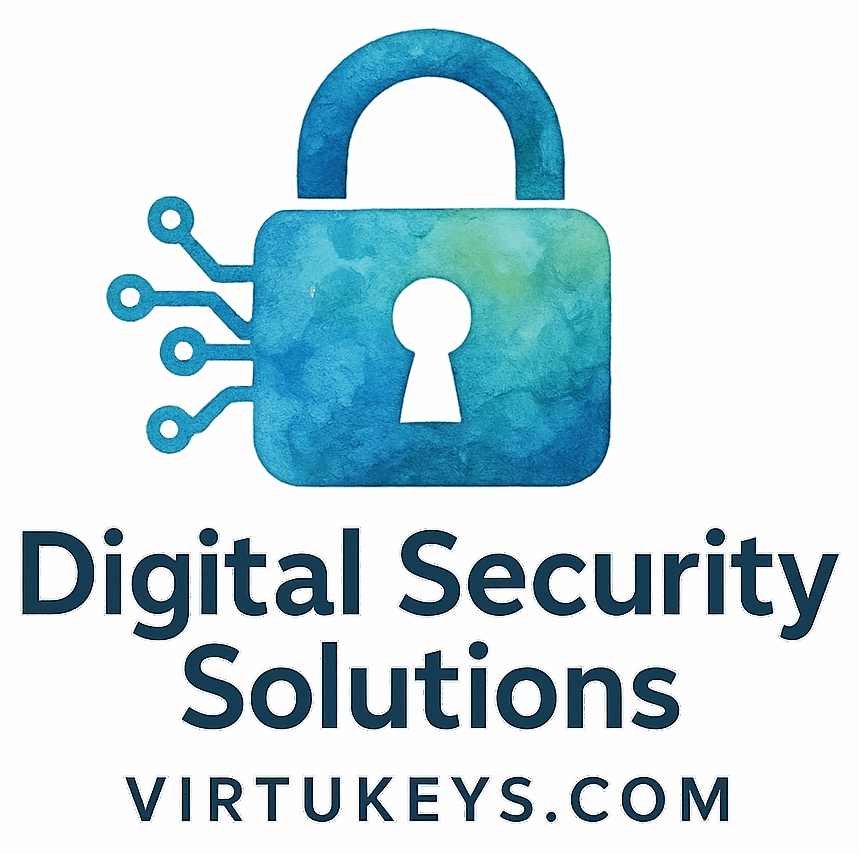Introduction to Data Encryption
Let’s face it—data is the new currency. Whether you’re running a small café with a loyalty app or managing an international e-commerce store, your customer and business data is worth a fortune to cybercriminals. That’s where data encryption comes in. It’s not just an IT buzzword anymore; it’s a must-have shield that keeps your sensitive information safe from prying eyes.
In this article, we’ll explore seven essential data encryption standards every business owner should know. Think of this as your encryption survival guide, simplified and packed with insights you can actually apply.
Why Data Encryption Matters for Businesses
Protecting Customer Trust
Customers today are cautious. They’ve read about data leaks and stolen identities. If you want their trust, you need to show them you take security seriously. Encryption makes their data unreadable to outsiders, boosting their confidence in your brand.
Compliance with Regulations
Many industries—healthcare, finance, e-commerce—are legally required to secure data. Compliance frameworks like GDPR and HIPAA expect businesses to adopt encryption as part of their security policy. Fail to comply, and you’re staring down fines that could wipe out your profits.
Defending Against Cyber Threats
Hackers aren’t picky. From ransomware to phishing, small businesses are just as attractive targets as corporations. Encryption ensures that even if attackers breach your system, the stolen data is useless without the keys.
Overview of Data Encryption Standards
What Are Encryption Standards?
Encryption standards are agreed-upon methods of securing data, designed and tested by experts worldwide. They act like digital padlocks, ensuring consistency and trustworthiness.
How Businesses Apply Them
Depending on your industry, you may need to use one or several encryption methods. From protecting emails to securing online payments, these standards form the backbone of modern business safety.
Standard #1: Advanced Encryption Standard (AES)
Why AES is the Gold Standard
AES is the rock star of encryption. Approved by the U.S. government, it’s used everywhere—from banking apps to cloud storage. It offers strong protection with key lengths of 128, 192, or 256 bits.
Business Use Cases of AES
- Securing sensitive files
- Encrypting database records
- Protecting communications across company servers
If you’re new to encryption, AES should be your first stop. Learn more about data encryption basics.
Standard #2: Rivest–Shamir–Adleman (RSA)
How RSA Works
RSA uses two keys—a public and a private one. Imagine a locked mailbox: anyone can drop a message in (public key), but only you can open it (private key).
RSA in Business Applications
RSA is ideal for:
- Digital signatures
- Securing emails
- Safe exchange of encryption keys
Its reliability has kept it relevant for decades, though it’s slower compared to AES.
Standard #3: Triple Data Encryption Standard (3DES)
Benefits of 3DES
3DES is like the older sibling of AES—less sleek, but still reliable in certain use cases. It applies the DES algorithm three times for extra security.
Limitations of 3DES
The downside? It’s slower and more resource-heavy. Still, many financial institutions continue using it for legacy systems.

Standard #4: Blowfish and Twofish
Speed and Flexibility
Blowfish is fast, compact, and unpatented—perfect for businesses on a budget. Its successor, Twofish, is stronger and still efficient.
When to Use Blowfish/Twofish
They shine in situations like securing passwords and encrypting smaller chunks of data. Affordable, reliable, and scalable—just what small businesses need.
Standard #5: Elliptic Curve Cryptography (ECC)
Why ECC is Perfect for Small Businesses
ECC offers strong encryption with smaller key sizes, meaning it’s both secure and efficient. Small businesses love it because it doesn’t hog computing power.
ECC vs RSA
Compared to RSA, ECC achieves similar security with shorter keys, making it faster and lighter.
Standard #6: Secure Hash Algorithms (SHA Family)
SHA-256 and Modern Security
The SHA family, especially SHA-256, powers blockchain, password storage, and digital certificates.
Applications in Compliance and Auditing
For businesses, SHA helps ensure compliance with data encryption audits. It’s vital for proving your records haven’t been tampered with.
Standard #7: Transport Layer Security (TLS)
Securing Online Transactions
TLS is the reason your customers see a little padlock icon when shopping online. It encrypts data exchanged between browsers and servers.
TLS for Customer Confidence
Without TLS, customers won’t trust your checkout page. With it, you not only secure payments but also build brand loyalty.
Choosing the Right Data Encryption Standard for Your Business
Small Business Considerations
If you’re running lean, consider budget-friendly options like Blowfish or ECC. They provide security without draining your resources.
Enterprise-Level Needs
Big corporations may require a mix of AES, RSA, and SHA to handle massive amounts of data while staying compliant with international encryption regulations.
Common Mistakes Businesses Make with Encryption
Weak Implementation Practices
Using outdated keys or not rotating them often is like leaving the front door unlocked. Don’t just install encryption—manage it properly.
Overlooking Cloud Encryption Pitfalls
Businesses often assume the cloud provider handles everything. In reality, poor practices can lead to costly cloud encryption mistakes.
Affordable and Scalable Encryption Solutions
Budget-Friendly Tools
Many affordable encryption tools exist today, tailored for startups and SMEs. Open-source software often gives strong protection at low or no cost.
Cloud-Based Software
Cloud providers now offer encryption as a service. Be sure to check tools and software reviews before committing.
Compliance Regulations and Encryption
GDPR, HIPAA, PCI DSS Overview
Compliance rules don’t just suggest encryption—they demand it. Whether handling health data, credit card info, or EU customer data, encryption is a must.
Auditing and Reporting Requirements
Regular data encryption audits prove you’re serious about protecting information. They also save you from fines and reputational damage.
The Future of Encryption Standards
Post-Quantum Cryptography
Quantum computers are coming, and with them, the risk of breaking today’s encryption. Businesses should stay informed about future encryption developments.
Global and Cross-Platform Standards
Expect encryption to become more cross-platform, ensuring compatibility across devices and industries worldwide.
Practical Steps to Implement Encryption Today
Tools and Software Recommendations
Check out implementation guides to choose the right tools. Whether cloud-based or on-premises, make sure they align with your needs.
Staff Training and Policies
Technology is only half the battle. Train employees to handle encrypted data properly. Mistakes often come from human error, not the tools.
Conclusion
Data encryption isn’t just a tech issue—it’s a business survival strategy. From AES to TLS, the seven standards we explored are critical for safeguarding customer trust, meeting compliance, and defending against cyber threats. Whether you’re a small business owner or running a global enterprise, the right encryption strategy can mean the difference between success and disaster.
So, take the leap today. Explore VirtuKeys for more resources, from advanced encryption strategies to small business solutions.
FAQs
1. What is the best encryption standard for small businesses?
ECC and Blowfish are excellent for small businesses due to their speed and efficiency.
2. Why is AES considered the strongest encryption standard?
AES offers high levels of security with multiple key sizes and is widely trusted by governments and corporations.
3. How often should businesses update encryption keys?
Regular key rotation—every few months—is best practice to avoid vulnerabilities.
4. Can cloud providers handle encryption for me?
Yes, but you must ensure they follow strong protocols. Businesses are still responsible for avoiding cloud encryption mistakes.
5. What’s the role of encryption in compliance?
Encryption is essential for meeting compliance regulations like GDPR, HIPAA, and PCI DSS.
6. Will current encryption methods survive quantum computing?
Probably not. That’s why researchers are developing post-quantum encryption.
7. Where can I learn more about implementing encryption?
Check out VirtuKeys’ implementation guides and tools and software for step-by-step help.

